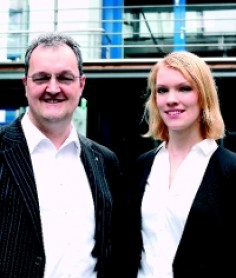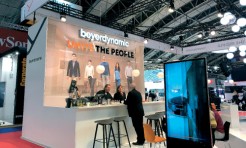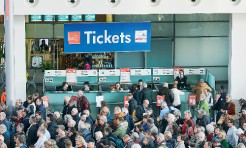How can fear of terrorism be overcome at events?
Terrorist attacks or killing sprees are now being reported so widely around the world that nobody can fail to notice them. But why do we feel more afraid after major attacks, in particular, and what can we do about it?

Experts:
Jana Domrose
Olaf Jastrob
Technische Unternehmensberatung Jastrob
Geilenkirchen
Perceived and genuine risks
It is often difficult for people to assess risks realistically. A good example of this is the period after the attacks on the World Trade Center on 11 September 2001. Fearful of another aircraft hijacking, many Americans stopped flying; instead, they made longer trips by car. As a consequence of this apparently more safety-conscious behaviour, around 1,000 more Americans died between October and December 2001 than would have been expected judging from the statistics of the previous two years. Smoking provides another example of a false assessment. Around 121,000 people died of the consequences of smoking in Germany in 2013. Despite that, a third of adults in Germany still smoke. On the other hand, there were no victims of terrorist attacks at all that year. In 2016 there were 12. Although this is low compared to the numbers who die from smoking, we still avoid crowds and public places after a terrorist attack.
The influence of emotions
The false assessments described are often an emotional response to large numbers of people being killed unexpectedly at the same time. On the other hand, if many people die but their deaths are distributed throughout the year, it doesn’t provoke fear in us in the same way at all. Media attention also plays a not insignificant role in this. The more photographs and video images that are presented to us, the more intensively we are confronted by an incident. As a result, in similar situations, such as at public events, we are reminded all the more of the possibility of disaster.

The need for control
The less control we have over something, the more we tend to overestimate the threat it poses. When we board an aircraft, for example, we put our fate in the hands of others. Threats imposed on us, such as terrorism, seem worse to us than risks we take voluntarily like smoking too much. That’s why many are reluctant to gather in public places or attend events after terrorist attacks. We don’t know who might be there or what might be on their mind.
Putting risks in perspective
On the day after an attack or disaster of some kind, it’s difficult to be objective. The contact you have with your family and friends and the reaction of the media and general population tend to exacerbate your sense of being in danger. It doesn’t help either if you suppress this feeling and go to an event with negative thoughts. On the other hand, our quality of life would suffer if we all withdrew into our shells. If people are going to avoid events for security reasons, they shouldn’t really go anywhere where there are large numbers of people – the pedestrian zone, department stores, supermarkets, restaurants, railway stations and so on. It can help to put risks in perspective: You can never be totally safe, whether you are in a public space or your own four walls. If you look at the statistics, the risk of dying at home is much greater than that of dying in a terrorist attack or plane crash. If you get that straight in your mind, you may be able to deal with threats more calmly. It also helps to familiarise yourself with general safety- and security-related aspects before you go to an event. Where are the emergency exits in the stadium, and how should I conduct myself in the event of an emergency? The risk remains the same, but a sense of being well prepared can make people feel safer.
Improving safety and security
Those attending events can contribute actively to security simply by being watchful. That applies not just to unattended bags but also to other things such as fire hazards. It is better to raise the alarm too much than too little. To give people a sense of security, it helps if event organisers ensure that people can see that there are security personnel or paramedics present. It can also have a positive impact if there are people at an event to whom you can turn with any concerns. On the other hand, excessive security measures can also have the opposite effect and reduce how safe people feel. Organisers should therefore seek to strike a healthy balance.
Jana Domrose has a master of science in psychology, and Olaf Jastrob is a specialist in event safety and security. You will find more information on the blog at www.sichere-veranstaltung.de
This article was published in TFI issue 1/2017
Share in Facebook, Twitter or Google+:
TFI - Trade Fairs International - The International Trade Fair Magazine.
© 2006 - 2024 by TFI-Verlagsgesellschaft mbH. All rights reserved. TFI-Verlagsgesellschaft mbH shall accept no responsibility for the contents of external links and other contents.
TFI-Know-how
-
What to do when things go wrong at virtual or in-person events?

In the event world, it’s simply part of life if things don’t work out as planned.
-
How can networking be made to work at online events?

Networking typically happens at real, in-person events. But it’s also possible to do it online; it just works a little differently. There are various options available to organisers.
-
How can exhibitors stand out at trade fairs?

New products and a well-conceived stand design are not the only drivers for a successful presence. Many other factors are also important, but trade fair planners often lose sight of them.
-
How can industry decision-makers be reached online?

Trade fairs and trade fair companies need to constantly further develop, become more agile and flexible and offer services all year round. New, digital offerings are very important here. With its TrustedTargeting technology, Messe München offers its customers access to leading business-to-business decision-makers on the Internet.


